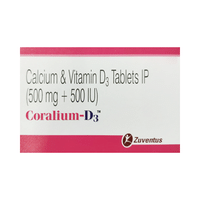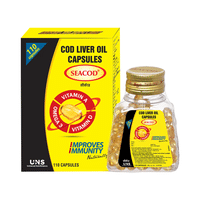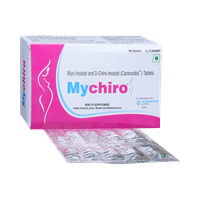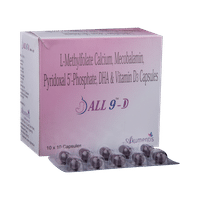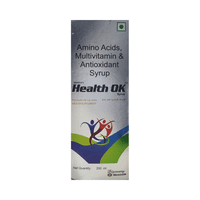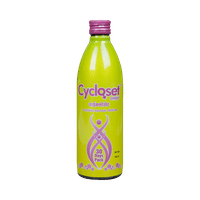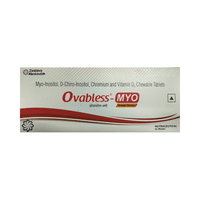B Pam P 0.5mg/20mg Tablet

food interaction for B Pam P
alcohol interaction for B Pam P
pregnancy interaction for B Pam P
lactation interaction for B Pam P
food
alcohol
pregnancy
lactation
B Pam P 0.5mg/20mg Tablet is to be taken empty stomach.
None
None
CAUTION
It is unsafe to consume alcohol with B Pam P 0.5mg/20mg Tablet.
UNSAFE
B Pam P 0.5mg/20mg Tablet is unsafe to use during pregnancy as there is definite evidence of risk to the developing baby. However, the doctor may rarely prescribe it in some life-threatening situations if the benefits are more than the potential risks. Please consult your doctor.
CONSULT YOUR DOCTOR
B Pam P 0.5mg/20mg Tablet is probably safe to use during breastfeeding. Limited human data suggests that the drug does not represent any significant risk to the baby.
SAFE IF PRESCRIBED
SALT INFORMATION FOR B Pam P
Clonazepam(0.5mg)
Uses
Clonazepam is used in the treatment of anxiety disorder and epilepsy/seizures.
How it works
Clonazepam is a benzodiazepine. It works by increasing the action of a chemical messenger (GABA) which suppresses the abnormal and excessive activity of the nerve cells in the brain.
Common side effects
Depression, Dizziness, Drowsiness, Fatigue, Memory impairment, Agitation, Blurred vision, Constipation, Headache, Muscle weakness, Skin rash, Sleep disturbance, Sleepiness, Urinary retention, Abnormal behavior, Cognitive impairment, Abnormality of voluntary movements, Nervousness, Upper respiratory tract infection, Allergic reaction, Influenza, Pain during periods, Difficulty in speaking, Emotional lability, Decreased libido, Change in body weight, Edema (swelling), Hypotension (low blood pressure), Migraine, Paresthesia (tingling or pricking sensation), Abdominal discomfort, Upset stomach, Vertigo, Infection, Acne, Discomfort when urinating, Eye irritation, Visual disturbance, Palpitations, Hair loss, Decreased appetite, Anemia (low number of red blood cells), Decreased white blood cell count (lymphocytes), Low blood platelets, Hepatomegaly (enlarged liver), Increased liver enzymes, Dehydration, Fever, Insomnia (difficulty in sleeping), Psychosis, Excitation, Irritability, Aggression, Hostility, Anxiety, Nightmares, Vivid dreams, Hypotonia (decreased muscle tone), Abnormal eye movements, Nystagmus (involuntary eye movement)
Propranolol(20mg)
Uses
Propranolol is used in the treatment of Angina (heart-related chest pain), Arrhythmia, heart attack, Hypertension (high blood pressure), Anxiety, Tremors, Prevention of migraine and Pheochromocytoma.
How it works
Propranolol contains Propranolol, a beta blocker. It works by affecting the body’s response to nerve impulses, especially in the heart. It slows down your heart rate and makes it easier for the heart to pump blood around the body. This prevents arrhythmia, stabilizes blood pressure and prevents a heart attack. It also widens the blood vessels in the body for better blood flow, thereby preventing angina as well as migraine. The exact mechanism by which it prevents tremors is not known, but experts believe that Propranolol helps block the nerve impulses to the muscles responsible for tremors. Propranolol helps block the effects of the chemical messengers namely, adrenaline and noradrenaline, that are produced by the brain and are responsible for increasing your heart rate which makes you feel anxious. This way it helps with anxiety. While treating pheochromocytoma, Propranolol may be given to block the action of high-adrenaline hormones, to lower the risk of developing dangerously high blood pressure during surgery for removing the tumor.
Common side effects
Sleep disturbance, Fatigue, Low blood platelets, Psychosis, Mood changes, Hallucination, Myasthenia gravis, Slow heart rate, Nightmares, Cold extremities, Paresthesia (tingling or pricking sensation), Hair loss, Purpura
SUBSTITUTES FOR B Pam P
41 Substitutes
41 Substitutes
Sorted By
 Rs. 49.90pay 5% more per Tablet
Rs. 49.90pay 5% more per Tablet Rs. 63.80pay 35% more per Tablet
Rs. 63.80pay 35% more per Tablet Rs. 52.95pay 12% more per Tablet
Rs. 52.95pay 12% more per Tablet Rs. 49pay 3% more per Tablet
Rs. 49pay 3% more per Tablet Rs. 43.90save 7% more per Tablet
Rs. 43.90save 7% more per Tablet
Expert advice FOR B Pam P
- The addiction / habit-forming potential of this medicine is very high. Take it only as per the dose and duration advised by your doctor
- It may cause dizziness. Do not drive or do anything that requires mental focus until you know how this medicine affects you.
- Avoid consuming alcohol as it may increase dizziness and drowsiness.
- Inform your doctor if you are pregnant, planning to conceive or breastfeeding.
- Inform your doctor if you experience worsen anxiety, depression angry, or violent behavior and mania while taking this medicine.
- Do not stop taking medication suddenly without talking to your doctor as that may lead to nausea, anxiety, agitation, flu-like symptoms, sweating, tremor, and confusion.
Frequently asked questions FOR B Pam P
Clonazepam
Q. Is Clonazepam a sleeping pill?
Clonazepam belongs to a class of medicines called benzodiazepines and is used to treat anxiety, stop seizures (fits) or relax tense muscles. This can also help relieve difficulty sleeping (insomnia), and is usually prescribed for a short period of time, if used to treat sleeping problems. You should take it in the dose and duration advised by the doctor.
Q. Does Clonazepam cause sleepiness? If yes, then should I stop driving while taking Clonazepam?
Yes, Clonazepam causes drowsiness very commonly. It also causes forgetfulness and affects muscular function which may adversely affect your ability to drive. Sometimes, drowsiness persists even on the following day. So, in case Clonazepam makes you sleepy and affects your alertness, you should avoid driving.
Q. For how long should I take Clonazepam?
The duration of treatment with Clonazepam is mainly as short as possible. Your doctor will evaluate you after 4 weeks of treatment in order to assess the need for continuation of treatment, especially if you do not have any symptoms. Before taking you off this medicine, your doctor may gradually decrease your dose to prevent any withdrawal side effects. Follow your doctor’s instructions carefully to get the most benefit.
Propranolol
Q. My doctor has prescribed Propranolol even though my blood pressure is within normal limits. Is it because of the chest pain that I complained of?
Yes, it is possible that your doctor prescribed Propranolol for chest pain (angina). Propranolol is a beta-blocker that is used to lower high blood pressure, prevent angina, treat or prevent heart attacks or reduce your risk of heart problems following a heart attack. Propranolol is also used to treat irregularities in the heartbeat, including those caused by anxiety, essential tremor (shaking of the head, chin and hands). It also prevents migraine headaches, overactive thyroid (thyrotoxicosis and hyperthyroidism), and bleeding in the food pipe caused by high blood pressure.
Q. When can I expect relief in my symptoms after starting Propranolol for high blood pressure?
Propranolol usually starts working within a few hours of taking it. However, it may take up to a week to see the full benefits of the symptoms of high blood pressure or heart conditions. You may not notice any difference, but that does not mean it is not working. However, keep taking this medicine as prescribed by your doctor because you will still be getting its full benefits.
Q. Can Propranolol be used in asthmatics?
No, Propranolol cannot be used in asthmatics. This is because using Propranolol in asthma patients can cause breathing problems, which may trigger an asthma attack. Always inform your doctor if you have or ever had asthma or any episodes of difficulty breathing, before starting treatment with Propranolol.















